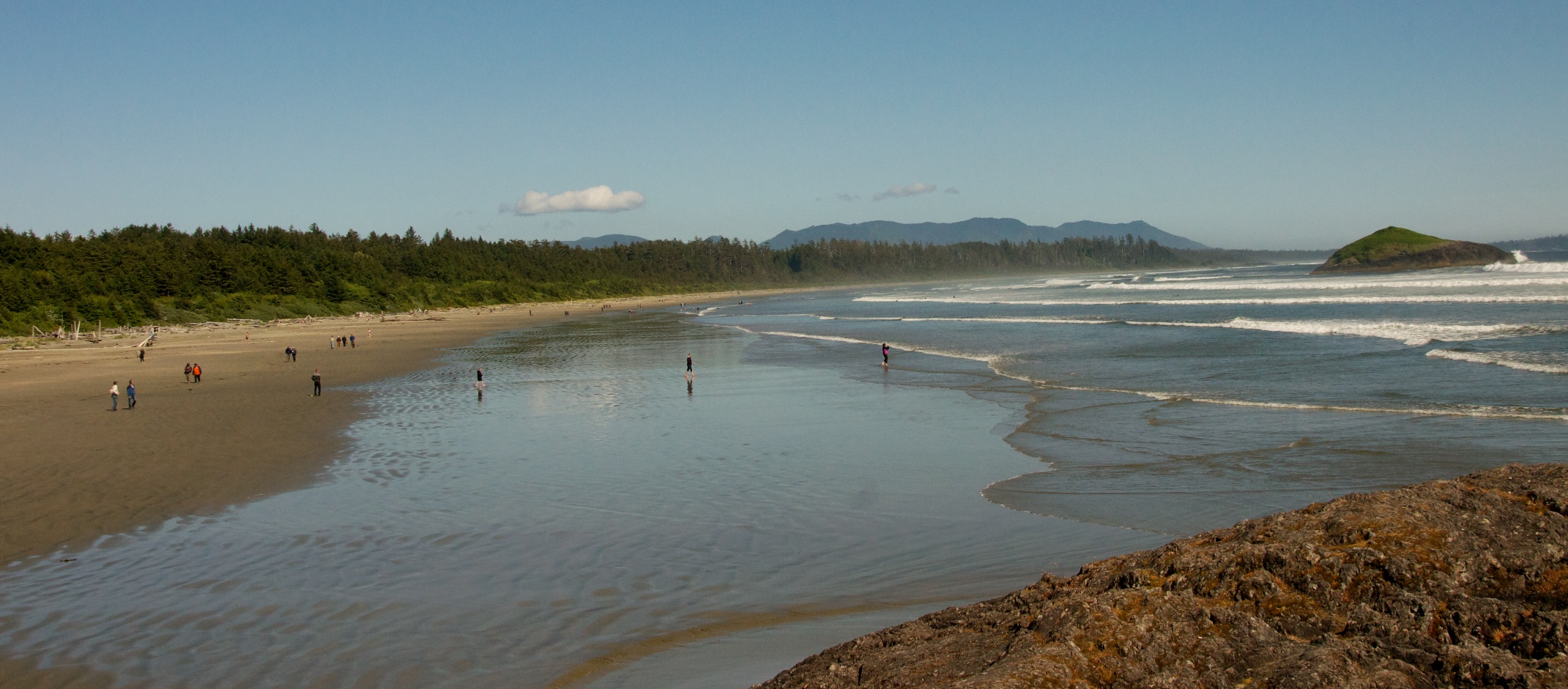West Coast of Vancouver Island in British Columbia, Canada
Tofino, BC, Canada
The West Coast of Vancouver Island in British Columbia, Canada, is the traditional home of Ahousaht, Hesquiaht and Tla-o-qui-aht First Nations (indigenous communities), including the tourist destination Tofino. Fishing is integral to local cultures and livelihoods, but wild Chinook salmon stocks are in serious decline. In response, First Nations, government and stakeholders formed a consensus-based co-management group that draws on scientific and local knowledge to plan for the recovery and sustainable management of these stocks.
Top environmental challenge faced by the community (currently or in the past 10 years):
Fishing has been a major part of the fabric of the region. This includes indigenous harvest for subsistence and economic purposes, as well as sport and commercial fishing, and both shellfish and finfish aquaculture. However, there is significant community concern about the continued decline in wild stocks. WCVI wild Chinook is listed as a 'stock of concern', and populations remain at low levels despite significant reductions in harvest rates and improvements in marine conditions. As of 2015, non-hatchery fish only account for 20% of the total annual production of WCVI Chinook.
How the environmental challenge has affected local livelihoods:
In 2008, the Pacific Salmon Treaty included a 30% reduction to the commercial catch of Chinook on the West Coast of Vancouver Island. The actual catch reduction was 52.3%, which amounted to significant hardship for fishers. From 2012 - 2014 alone, this equaled a $15.68M difference in landed value. The Chinook status has also meant reduced economic opportunity for local First Nations, and a more limited effort (closer to shore) by recreational fishers.
Community response to the challenge, through environmental stewardship (conservation) initiatives that improve environmental well-being and support sustainable livelihoods:
First Nations, Fisheries and Oceans Canada, local environmental groups, the aquaculture industry and other stakeholders have formed the Area 24 Roundtable, which is a consensus based co-management group. The Roundtable is mandated with developing the best possible plan for the recovery and sustainable management of Clayoquot Sound's wild salmon stocks. Over the past few years, the Roundtable has conducted a Chinook Risk Assessment to determine the key limiting factors to Chinook production. The group has also commissioned the development of watershed based Habitat Status Reports that quantify the state and habitat factors that are potentially limiting fish production. Monitoring has also been initiated to fill information gaps identified in the Risk Assessment, such as temperature, dissolved oxygen, and pH. The table has also created the Clayoquot Salmon Wild Salmon Fund to support salmon enhancement, stock rebuilding and recovery initiatives as prioritized by the Roundtable's recovery plan. Further, the community participated in a recently held forum hosted by West Coast Aquatic to document the impacts that the Pacific Salmon Treaty has had on the fishers and broader region.
Extent to which governmental policy (at local, regional or national levels, as relevant) has supported, or been contrary to, the community's responses to the environmental challenge:
As a Roundtable participant, Fisheries and Oceans Canada has supported the co-management approach being used in Clayoquot Sound. Over and above the local management decisions made at the Roundtable, participants are also using their local knowledge to contribute feedback to boarder processes such as the South Coast Integrated Fishing Management Plan, renegotiation of the Pacific Salmon Treaty, and review of the Fisheries Act.
Keywords: Ecosystem
Coastal, Marine
Keywords: Resources
Fish
Keywords: Big Issues
Indigenous peoples
Keywords: Solutions
Governance/Management
Contributed by: Tawney Lem, West Coast Aquatic
The information provided and opinions expressed above are the responsibility of the contributor and do not necessarily reflect the views and analysis of the Community Conservation Research Network (CCRN), nor those of all members of the community described.
For any questions or comments on Communities in Action, please contact us
here.



